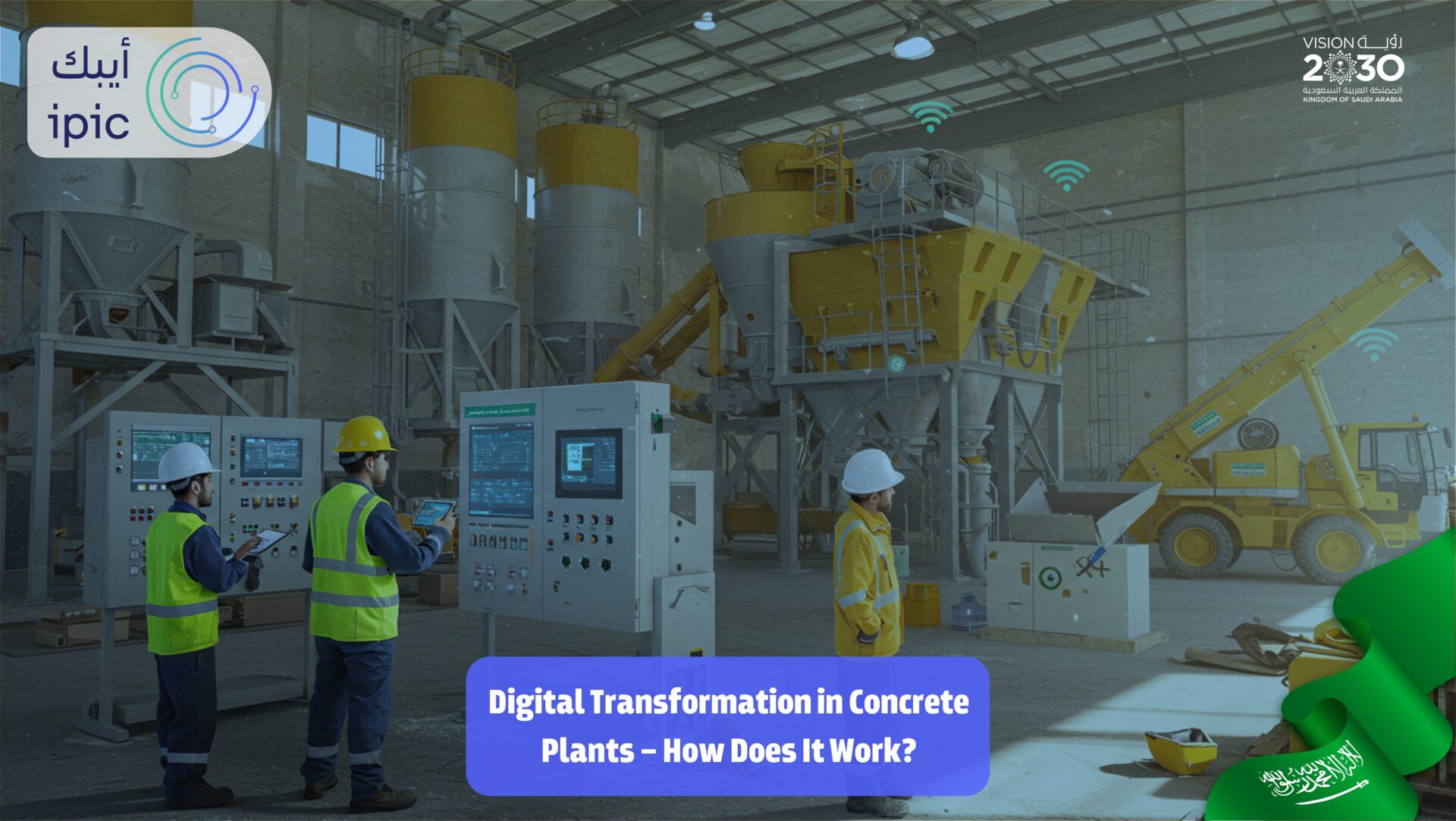Digital Transformation in Concrete Plants – How Does It Work?
In today’s modern construction landscape, concrete production is no longer just about heavy machinery and manual labor. Digital transformation has become essential for improving efficiency, ensuring quality, and reducing costs.
But what does digital transformation look like inside a concrete plant? And how is it practically implemented?
Why Do Concrete Plants Need Digital Transformation?
- Accurate control of concrete mix designs
- Tracking deliveries from plant to site
- Reducing raw material waste
- Improved scheduling and dispatching
- Ensuring compliance with quality and environmental standards
Digital transformation is not just about installing new equipment. It’s about connecting data, automating processes, and using smart analytics to enable faster, better decision-making.
Practical Steps Toward Digital Transformation in a Concrete Plant
1. Assess Digital Readiness
First , is understanding the current state. Are most operations manual? Are machines connected? Is production and quality data being collected?
Companies like IPIC offer structured readiness assessments to identify gaps and opportunities.
2. Digitize Operational Data
Sensors are installed on mixers, conveyors, and weighing systems to collect real-time data on mix proportions, temperatures, and moisture levels.
3. Implement a MES (Manufacturing Execution System)
MES connects the shop floor activities, enabling tracking of each production order from scheduling to delivery, with full quality and performance monitoring.
4. Integrate with ERP Systems
Production data is integrated with financials, inventory, and sales systems—creating a complete view of operations and enabling smarter strategic decisions.
5. Use Smart Dashboards and Data Analytics
With tools like Power BI, performance is visualized on live dashboards, showing KPIs like production output, quality metrics, downtime, and efficiency.
6. Leverage Artificial Intelligence
so , At advanced stages, AI can predict machine failures, optimize mix recipes based on historical performance, or dynamically adjust delivery schedules according to traffic and demand.
Real Example: A Concrete Plant’s Digital Success with IPIC
A concrete plant in Saudi Arabia faced challenges in quality control and raw material waste. With the support of IPIC, the plant:
- Installed real-time sensors on key equipment
- Deployed a MES system fully integrated with their ERP
- Built BI dashboards to track productivity and product quality
- Significantly reduced material loss and improved delivery performance
Conclusion: Digital is No Longer Optional
so , In the fast-paced and competitive construction industry, digital transformation in concrete production is not a luxury—it’s a necessity.
Those who delay modernization risk falling behind, while those who embrace data-driven operations gain a strategic edge.
With the right partner—like IPIC—your plant can begin a realistic, results-oriented journey toward a smarter future.
Is your plant ready to take the next step?
Let’s build the future—together.



